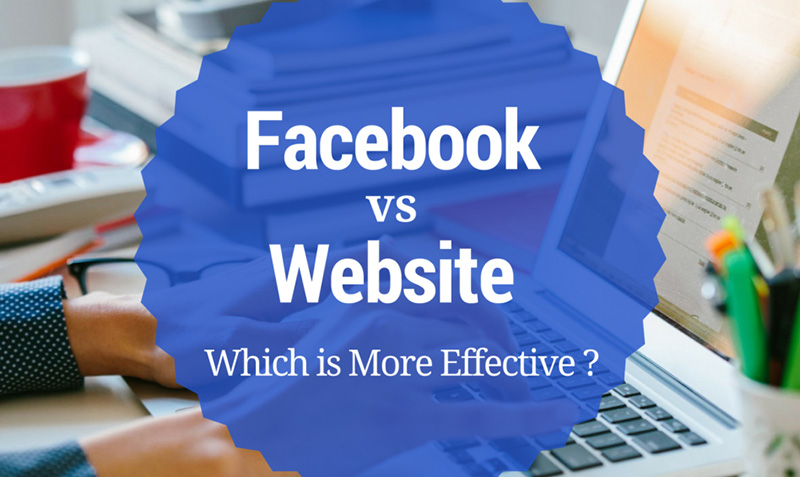
Hoteliers often discuss what’s the best place to invest, when developing their marketing and brand presence.
With everything going digital, there seems one of two choices and that’s a website or social media. Depending on who you ask, everyone’s got a different opinion.
Consensus, is that the Website provides complete control of your digital content. You’re able to convey the right message through your website and customize it around your brand, and its livery to make the site compelling and unique.
However, with the advent of Social Media and more than a billion users (and counting) - Sites like Facebook, LinkedIn, Twitter and Google Plus have become the new pillars of strength in digital PR marketing.
Social Media sites have unleased new opportunities to engage the user and target user groups. Compared with traditional stand-alone websites, social media links user to user (friends and fans) through peer to peer networking. The strength of peer to peer networks available through social media is not available for stand-alone websites.
With this in mind, the right question becomes - What’s the best way to use both platforms and their unique value proposition to reach your targeted audience?
If you want full control over your brand, then creating a (corporate) branded website is usually the best option.
It’s yours - you own it. You decide the livery, fonts, color, concepts, navigation and essentially what should be on it. For credibility, there’s no substitute to a website.
Remember, a website can be as simple as a one-page flyer for your business, or as sophisticated as a multimedia marketing and sales hub.
Creating your Social Media profile is easy. Social media platforms are pre-designed, and have fixed layouts that don’t cost anything to setup.
You can choose a basic or a more complete listing, depending on what you need. Either way, no matter the depth of information or the number of pictures you have – your listing is going to look pretty similar to any other page or anyone else’s listing.
allow you to customize – period!
For example, you can customize the website for your business …. Say you’re in a retail business and need the website designed and customized to suit e-commerce. It can have a homepage, banners, product page, check-out process and other features that make shopping possible.
Your audience can subscribe to your RSS feed to get the quick delivery of your news.
However, with , the layout is static.
You have to forego a lot in order to fit in the system. For example, when selling on Facebook, you have limited visibility of your product categories, there is no elaborate shopping procedure and management is really hectic. To top it all off, you can only differentiate yourself from competitors using content, the rest is fixed.
Websites are delivered though HTML or PHP pages and accessed directly by typing the address into your browser. At the same time, search engines can also help offer information about your business depending on the keyword search term that’s used.
But the website will only offer information about your property, when there’s a conscious attempt to access it directly or indirectly through a search engine.
Essentially, the website is by and large a static medium, delivering information about your brand to reinforce your marketing strategy. RSS feeds (like that mentioned above) are only useful if people understand how to use it.
Similar to a website, users can find listings by typing the name (of the business or hotel) into their browser or use the search engines to find an address with a “social tag” before or after the search term.
But the big difference between the two platforms, is the concept of engagement.
For example, because Information is regularly updated and routed into a news feed, users can see the latest news from Friends and Fans – as well as interesting snippets of similar news topics. The concept of “engaging” users and keeping them active, gives social media an invasive and a timely edge over a static website.
So even though you don’t own the space – it’s possible to build your marketing and reinforce the brand, through cleaver and ingenious “nurturing” of Friends and Fans.
Ideally, your business should have a website IN ADDITION TO a social media Fan page.
For hostels, guest houses, serviced apartments and even smaller boutique hotels with limited resources needing to establish their digital marketing presence - the social media option will suffice as a defunct website.
It's the cheap way to go and can serve as the digital platform to disseminate PR marketing information about your brand.
But if resources are available, its pays to consider both options. Here, you’d want to build a versatile and useful website, that’s engaging with plenty of good photos, bullet point copy and call to action prompts.
Then, on Social Media, to reinforce the website – which you’ve been cultivating, keep in “soft” contact with your Friends and Fan through active engagement by Posting and updating interesting news. Feed your posts regularly with promotions and freebies that are only available as a result of browsing through Social Media.
So instead of “one size fits all”, use both to promote and reinforce your marketing initiative and promote brand recognition.